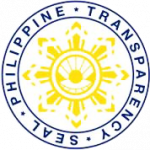- GOVPH
- About BOC
- Issuances
- Aduana Library
- Memoranda
- Memoranda for Reference Values
- Customs Administrative Order (CAO)
- Customs Administrative Order (CAO) 2025
- CUSTOMS ADMINISTRATIVE ORDER (CAO) 2024
- Customs Administrative Order (CAO) 2023
- Customs Administrative Order (CAO) 2022
- Customs Administrative Order (CAO) 2021
- Customs Administrative Order (CAO) 2020
- Customs Administrative Order (CAO) 2019
- Customs Administrative Order (CAO) 2018 and Older
- Customs Memorandum Order (CMO)
- Customs Memorandum Circular (CMC)
- Customs Memorandum Circular (CMC) 2025
- Customs Memorandum Circular (CMC) 2024
- Customs Memorandum Circular (CMC) 2023
- Customs Memorandum Circular (CMC) 2022
- Customs Memorandum Circular (CMC) 2021
- Customs Memorandum Circular (CMC) 2020
- Customs Memorandum Circular (CMC) 2019
- Customs Memorandum Circular (CMC) 2018 and Older
- Customs Special Order (CSO)
- Custom Training Circular (CTC)
- Joint Memorandum Orders (JMO)
- Trade
- News Room
- Port Updates
- HR Corner
- Quicklinks
- Infographics
- Bureau of Customs Webinar
- Auction and Sales
- Bid Opportunities
- Invitation to Bid / Request for Quotation / Invitation for Negotiated Procurement / Notice to Conduct Direct Contracting – 2023
- Invitation to Bid / Request for Quotation / Invitation for Negotiated Procurement / Notice to Conduct Direct Contracting – 2022
- Invitation to Bid / Request for Quotation / Invitation for Negotiated Procurement / Notice to Conduct Direct Contracting – 2021
- Invitation to Bid / Request for Quotation / Invitation for Negotiated Procurement / Notice to Conduct Direct Contracting – 2020
- Invitation to Bid / Request for Quotation / Invitation for Negotiated Procurement / Notice to Conduct Direct Contracting – 2019
- Invitation to Bid / Request for Quotation / Invitation for Negotiated Procurement / Notice to Conduct Direct Contracting
- Bid Documents
- Bid Supplement
- Summary of Awarded Contracts
- Summary of Contracts Awarded 2023
- Summary of Contracts Awarded 2022
- Summary of Contracts Awarded 2021
- Summary of Contracts Awarded 2020
- Summary of Contracts Awarded 2019
- Summary of Contracts Awarded 2018
- Summary of Contracts Awarded 2017
- Summary of Contracts Awarded 2016
- Summary of Contracts Awarded 2015
- Summary of Contracts Awarded 2014
- Summary of Contracts Awarded 2013
- Annual Procurement Plan
- Customs Knowledge Resources
- References
- Gender Equality and Diversity
- Philippine National Trade Repository
- Philippine Tariff Finder
- Authorized Economic Operator
Customs Mulls Changes in Transshipment Rules
Customs Commissioner Angelito Alvarez has ordered the agency’s Legal Service to determine if there is legal basis to require that transshipment cargoes eventually to be entered under consumption entries are processed, assessed and paid for at their port of discharge.
Alvarez said he wanted to change the rules on transshipment because of their susceptibility to abuse and misuse.
The customs chief explained that while transshipment is one of the trade facilitation practices being implemented in all customs administrations in the world, its disadvantages to the government far outweigh the benefits it provides to importers and brokers.
Transshipment which is also allowed by the Tariff and Customs Code of the Philippines (TCCP) refers to the movement under customs control of imported cargoes from their original port of discharge to their final port of destination. As practiced, the port of discharge allows the transshipment of containers to the port of destination where the consumption entry will be filed and assessment of duties and taxes will be made.
Alvarez said he favored the changing of the rules on transshipment in the light of his own discovery last May that nearly two thousand containers covered by transshipment permits from the Port of Manila (POM) and the Manila International Container Port (MICP) to the Port of Batangas could not be accounted for by the officials of the three customs collection districts.
The issue of missing containers is now the subject of a congressional inquiry being conducted by the House Sub-Committee on Customs and Tariff chaired by Congressman Rodolfo Farinas.
Alvarez clarified that contrary to the disinformation being peddled by some quarters, the revenue loss from the said missing containers was in the vicinity of P240 million as calculated by Congressman Farinas himself who assumed an average loss of P120, 000 per container.
Farinas calculation, while higher than the P88 million revenue loss based on transshipment entries filed by the brokers, was obviously more credible than the P3.6 billion that was reported in some media outlets.
Believing that the problem of unaccounted containers in Batangas could just be the tip of the proverbial iceberg, Alvarez said he had ordered the BOC’s Post-Entry Audit Group (PEAG) to conduct a nationwide audit on all transshipments covering prior years.
Alvarez said one of the reasons he wanted to revise the rules on transshipment was his belief that “transshipment transaction has become a marketing tool for customs collection districts who are forced by circumstances to attract the patronage of as many customers as they could get because of their district’s need to meet high collection targets.”
The practice, added Alvarez, “has apparently bred unhealthy competition among customs collection districts and other stake holders that may have in turn produced unwanted consequences such as the case of the missing containers in Batangas.”
Alvarez clarified that his idea of a transit cargo ban, should it be found to legally feasible, would only cover cargoes declared under consumption entries.
Shipments declared under warehousing entries, meaning those intended for use by locators in export processing zones and other customs bonded facilities, would not be covered.
However, existing operational protocols and processes will be reviewed to further strengthen control measures currently in place.
ABOUT GOVPH
All content is in the public domain unless otherwise stated.






